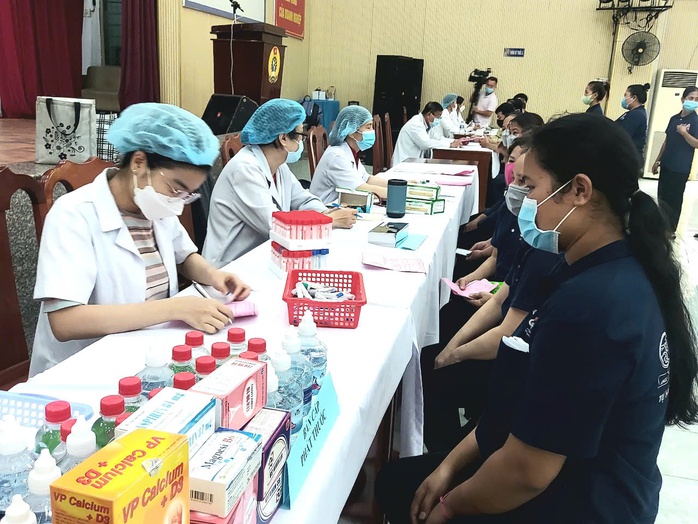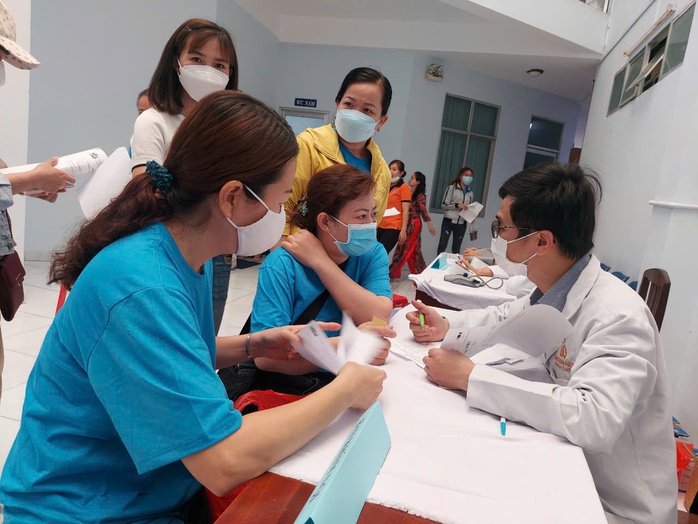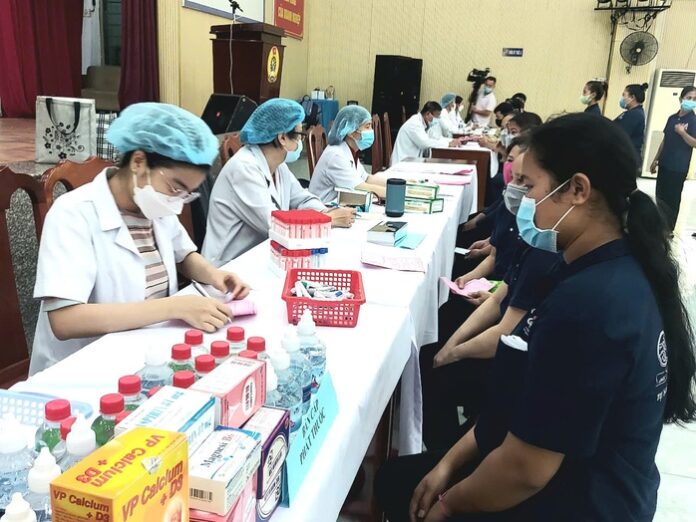The Ministry of Health has recently proposed a special allowance of up to 70% for civil servants and employees working in public healthcare institutions.
This move aims to attract and retain medical doctors, pharmacists, and nurses with a bachelor’s degree and above to work in grassroots-level medical facilities and local preventive medicine fields. It also motivates medical staff to commit to long-term service in these areas, reducing turnover rates.
According to the draft decree on the regulation of special occupational allowances for civil servants and employees in public healthcare institutions, the 70% allowance rate will be applied to civil servants who are regularly and directly involved in the following tasks:

Approximately 157,743 healthcare staff are expected to benefit from the special occupational allowance.
– Examination, treatment, testing, care, and service for patients with leprosy, tuberculosis, mental disorders, HIV/AIDS, and Group A infectious diseases.
– Examination, treatment, and care for patients in intensive care.
– Forensic medicine, forensic psychiatry, pathological anatomy, and corpse preservation.
– Working in laboratories requiring biosafety level III.
– HIV/AIDS prevention and control; examination, testing, and treatment for opioid addiction.
– Civil servants specializing in medicine in communes with particularly difficult socio-economic conditions, island districts, and island communes in maritime areas.
– Doctors working in communes in Area II of ethnic minority and mountainous areas.
A 60% allowance rate will be applied to civil servants who are regularly and directly involved in the following tasks:
– Examination, treatment, care, and service for patients with infectious diseases (excluding Group A); emergency patients (including out-of-hospital emergencies); toxicology; people with severe and profound disabilities; and wounded and sick soldiers.
– Testing to determine infectious disease-causing agents and toxins.
– Serum control for rabies, tetanus, and snake venom.
– Radiotherapy; chemotherapy; molecular biology; nuclear medicine; radiopharmaceutical and anticancer drug dosage formulation and division.
– Border health quarantine.
– Infectious disease surveillance and prevention.
– Doctors working at commune health stations, provincial/municipal disease control centers, and institutes for preventive medicine.

The total expected cost of the special occupational allowance for healthcare staff is approximately VND 357 billion/month.
A 50% allowance rate will be applied to civil servants who are regularly and directly involved in anesthesia, intensive care, diagnostic imaging, pediatrics, burns, dermatology, infection control, and clinical pharmacy. This also includes civil servants specializing in medicine at commune health stations, district health centers, provincial/municipal disease control centers, institutes for preventive medicine, and addiction treatment facilities.
For those working under labor contracts as specified in Decree No. 111/2022 and directly involved in the above tasks, the head of the unit shall consider and decide on the special occupational allowance based on the specific nature of the work and the revenue from the operational activities, but the allowance shall not exceed the rates specified in the corresponding items mentioned above.
A 40% allowance rate will be applied to civil servants who are regularly and directly involved in testing; examination and treatment; care and service for patients; functional exploration; medical assessment; traditional medicine; production and compounding of chemical pharmaceuticals; drug, raw material, and medical supply storage and distribution; drug, vaccine, biological product, chemical, cosmetic, food safety, nutrition, population, and social work testing and inspection.
Additionally, this rate applies to civil servants who are not directly involved in medical specialties at specialized institutions in the fields of infectious diseases, HIV/AIDS, leprosy, tuberculosis, mental disorders, pathological anatomy, forensic medicine, and forensic psychiatry, as well as out-of-hospital emergencies.
A 30% allowance rate will be applied to civil servants who are regularly and directly involved in health education and communication; those working in medical specialties in agencies, units, and schools; and civil servants who are not directly involved in medical specialties at healthcare institutions in general.
Approximately 157,743 civil servants and employees working in public healthcare institutions nationwide are expected to benefit from this policy. The total estimated cost to implement this policy is approximately VND 357 billion per month.
















